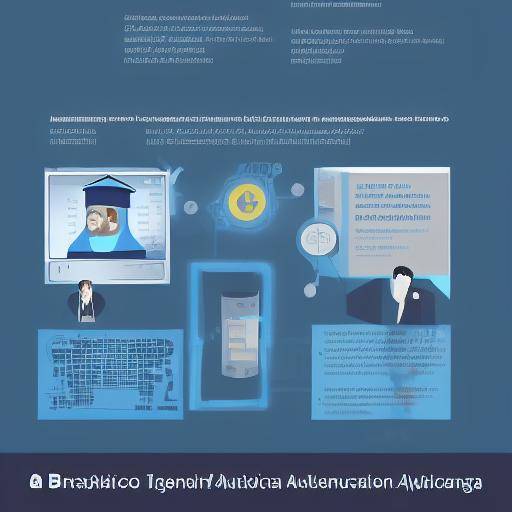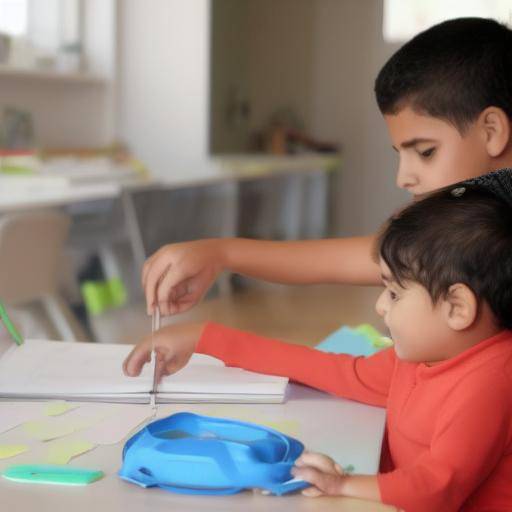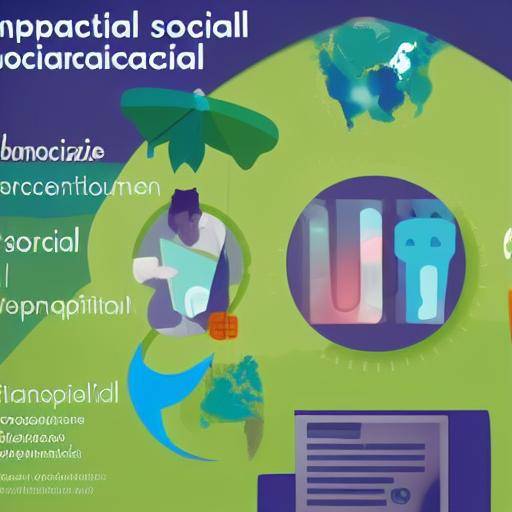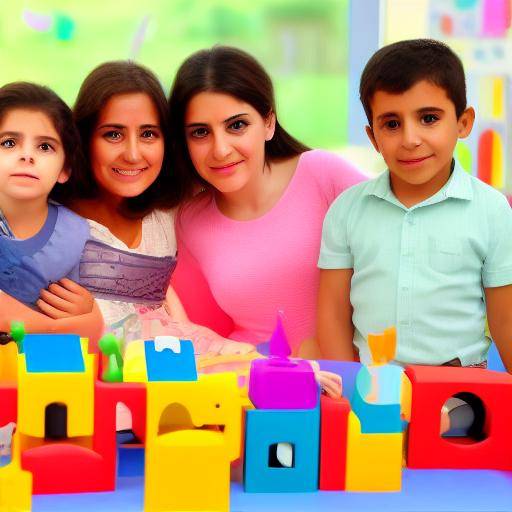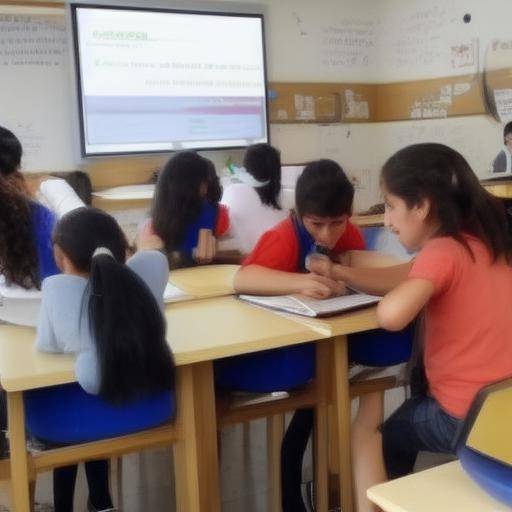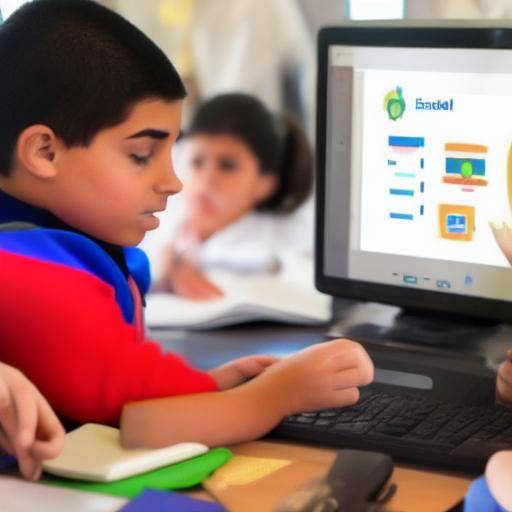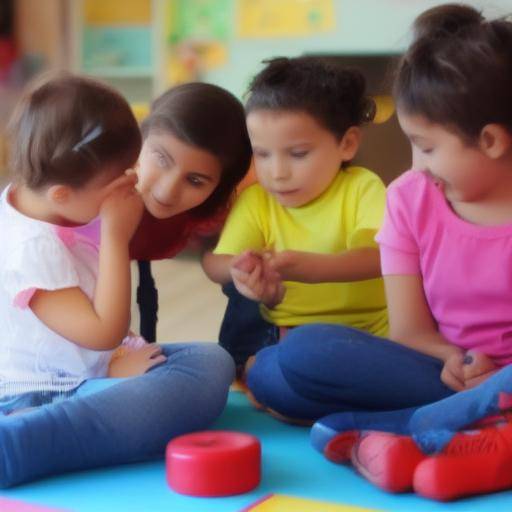
At present, adaptability has become a relevant issue in the upbringing and education of children. The ability to adapt to various situations and environments is not only crucial to personal development, but also significantly influences the social development of children. In this article, we will thoroughly explore the benefits of adaptability in the social development of children, highlighting their importance in the current world and providing practical guidance to foster this vital skill.
Introduction
Adaptability is an increasingly valued skill in all spheres of life, and the social development of children does not escape this trend. In a constantly changing world, the ability to adapt to new circumstances, effectively interact with other individuals and face resilience challenges has become a determining factor for success and personal well-being. In this article, we will extensively explore the benefits of fostering adaptability in children, focusing on their impact on social development. From its importance in the formation of healthy relationships to its influence in conflict resolution, we will know how adaptability can make a significant difference in the lives of children.
History and Background
The importance of adaptability in the social development of children has deep roots in history. From early child development theories to contemporary educational practices, adaptability has been recognized as an essential component in the integral formation of children. Over the centuries, various philosophic currents and scientific studies have helped to forge a wider understanding of how adaptability influences the well-being and social interactions of children.
Theories of Child Development and Adaptation
The theory of attachment of John Bowlby, developed in the 1950s, highlights the importance of affective relationships for the emotional and social development of children. This theory underlines the need for adaptability on the part of caregivers and responsible adults to meet the emotional needs of children, which in turn influences the ability of children to establish healthy links with other individuals throughout their lives.
Montessori Education and the Promotion of Adaptability
The Montessori pedagogy, created by Maria Montessori in the early twentieth century, advocates for an educational approach focused on the child and its integral development. It promotes autonomy, decision-making and adaptability in a structured but flexible learning environment. This philosophy has influenced contemporary understanding of the importance of adaptability as a crucial skill for the social and emotional development of children.
Deep analysis
Adaptability in the context of children ' s social development implies a number of tangible benefits that influence their ability to effectively interact with other individuals, face challenges and develop lasting relationships. These benefits extend beyond childhood, marking a significant impact on the adult and professional life of individuals.
Promotion of Resilience
Adaptability in the social development of children is essential to fostering emotional and psychological resilience. When children develop the ability to adapt to difficult situations, face challenges and recover from adversities, they build a solid foundation to face the difficulties they will encounter in their adult lives. This resilience allows them to develop a positive mentality and overcome obstacles with determination.
Empowerment and Cooperation
Adaptability in the social context allows children to understand the different perspectives and needs of others, thus fostering empathy and cooperation. When children are able to adapt to the needs and preferences of their peers, they can develop stronger interpersonal relationships based on mutual understanding and mutual support.
Improved Communication Skills
The ability to adapt to different social environments and situations fosters the development of effective communication skills in children. By learning to adjust their communication according to the context and audience, children can develop greater capacity to express their ideas, actively listen to others and resolve conflicts constructively, which contributes significantly to their social development.
Comprehensive review
Adaptability in the social development of children not only provides individual benefits, but also has significant social implications. By understanding how adaptability contributes to emotional well-being, healthy interpersonal relationships and effective collaboration, we can implement concrete strategies to promote this skill in children and society as a whole.
Educational strategies to promote adaptability
The integration of educational approaches that foster adaptability can have a significant impact on the social development of children. Practices that promote autonomy, problem solving and flexible decision-making can strengthen the ability to adapt to various social situations and emotional challenges. Schools and educators play a crucial role in implementing these strategies.
Role of the Family in the Development of Adaptability
The family environment plays a key role in fostering adaptability in children. Family interactions, modelling of resilient behaviors and promoting constructive conflict resolution can influence how children develop adaptive skills and face diverse social situations.
Comparative analysis
It is important to emphasize that adaptability is not a unique feature, but a complex skill that manifests itself in different ways in specific social contexts. By comparing the influence of adaptability in different aspects of the social development of children, we can better understand their scope and importance in the integral formation of individuals.
Similarities and Differences in Social and Emotional Adaptability
Social and emotional adaptability are intertwined significantly in the development of children. While emotional adaptability refers to the ability to manage one's emotions and adapt to stressful situations, social adaptability focuses on the ability to effectively interact with other individuals in different contexts. While they share common elements, these two dimensions of adaptability present significant differences in their influences on social development.
Synergies between Adaptability and Conflict Resolution
Adaptability and conflict resolution are closely related to the social development of children. The ability to adapt to different perspectives, communicate effectively and seek flexible solutions translates into a greater ability to handle interpersonal conflicts constructively. By fostering adaptability, the capacity to resolve conflicts in a peaceful and collaborative manner is simultaneously promoted.
Practical Tips and Accessible Recommendations
In understanding the benefits of adaptability in the social development of children, it is crucial to provide practical guidance and concrete recommendations to promote this skill effectively. From family strategies to educational approaches, there are multiple ways of cultivating adaptability in children and promoting their healthy social development.
Promote Problem Resolution and Flexible Decision Making
Promoting the development of skills to solve problems creatively and make flexible decisions is essential to foster adaptability in children. Providing opportunities to face diverse challenges and making decisions based on multiple options allows them to acquire the confidence necessary to adapt to new social situations and contexts.
Modeling Adaptive Behaviors
Significant adults in the lives of children, whether parents, caregivers or educators, play a crucial role in modeling adaptive behaviors. By demonstrating an open attitude towards change, the resolution of constructive conflicts and the acceptance of diversity, a valuable example is established that children can internalize and apply in their own social interactions. Adaptive behavior modeling complements verbal teachings and provides children with a solid reference framework to develop their own adaptability.
Industry Perspectives and Expert Reviews
Opinion leaders in education, child psychology and social development provide a unique vision of the influence of adaptability in the development of children. Its perspectives and expertise offer deep reflections on the importance of fostering adaptability and its impact on the overall well-being of children.
Interview with a Child Psychologist: Dr. Ana Martínez
Question: What is the crucial role of adaptability in the social development of children?
Response: "E adaptability is an essential skill that allows children to successfully face the social and emotional challenges they encounter in their daily lives. By developing the ability to adapt to different situations, children strengthen their emotional resilience and their interpersonal skills, which contributes significantly to their overall well-being and future success."
Case Studies and Real Life Applications
To illustrate the importance and tangible benefits of fostering adaptability in the social development of children, it is useful to explore real cases of study that demonstrate their impact on everyday environments. These practical examples offer a detailed view of how adaptability can influence the social interactions and emotional well-being of children in various contexts.
Case Study: Promoting Adaptability in a Primary School
A primary school implements a socio-emotional skills development program focused on fostering adaptability in its students. Through interactive activities and practices aimed at promoting the resolution of flexible problems, the school observes a significant improvement in the ability of children to adapt to challenging situations and effectively collaborate with their peers.
Future Trends and Predictions
The integration of adaptability in the social development of children continues to evolve, and emerging trends reflect a growing focus on promoting socio-emotional skills as an integral part of the educational process. The future points towards greater awareness and assessment of adaptability as a key driver of the well-being and success of children in a constantly changing world.
Integration of Adaptability in Education Programs
Educational programmes and school institutions are expected to more broadly integrate adaptive skills development into their curricula. This integration is based on the growing recognition of the importance of socio-emotional skills in the academic and personal success of children, contributing to a more holistic approach to education.
Conclusion
Promoting adaptability in the social development of children is a fundamental investment in their present and future well-being. By providing them with the tools and strategies necessary to adapt to changing environments, confronting resilience challenges and developing solid relationships, we are providing them with fundamental skills to thrive in a dynamic world. Adaptability is not only a key skill in the social development of children, but also a fundamental pillar for building a more inclusive, empathic and prepared society to face the challenges of the future.
Frequently asked questions
Why is it important to foster adaptability in the social development of children?
Adaptability is fundamental for children to be able to face the challenges of everyday life, effectively interact with others and develop emotional resilience skills. Promoting adaptability in the social development of children provides valuable tools for dealing with a constantly evolving world.
How can I promote adaptability in my child?
There are various strategies to promote adaptability in children, such as providing them with opportunities to make independent decisions, expose them to diverse situations that require flexibility and modeling adaptive behaviors through example.
Does adaptability in the social development of children influence their academic performance?
Yes, adaptability in the social development of children can positively influence their academic performance by strengthening their problem solving skills, effective communication and collaboration, which contributes to a healthier and more successful learning environment.
What role do parents play in promoting adaptability in their children?
Parents play a key role in providing an environment that allows their children to develop adaptive skills. This is achieved through the promotion of autonomy, the resolution of joint problems and emotional support in challenging situations.
Deditionally, this article has thoroughly explored the benefits of adaptability in the social development of children, offering an integral perspective that encompasses both theory and practical application. The importance of fostering adaptability in children becomes evident through its various benefits, and its crucial role is emphasized in the formation of resilient, empathetic and successful individuals. By understanding the positive influence of adaptability in the social development of children, we are positioned to implement concrete strategies that promote this vital skill and lay the foundation for a more promising future for generations to come.



